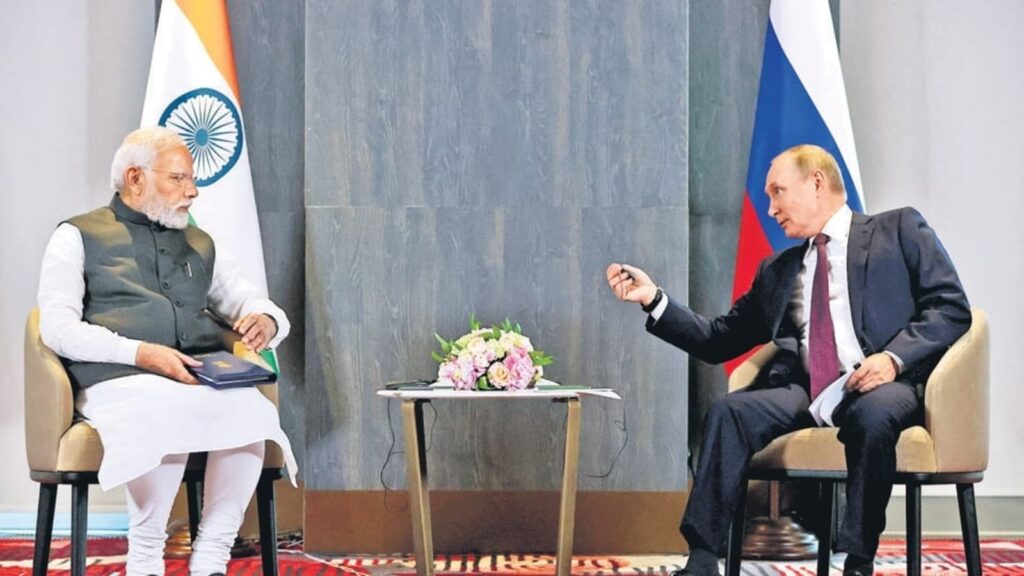On arriving in Moscow for a five-day visit, external affairs minister S Jaishankar tweeted: “Geopolitics and strategic convergence will always keep India-Russia ties on a positive trajectory.” There cannot be a better summing up of India’s relations with Russia, which have remained steady despite recalibrations in the foreign policy priorities of both Delhi and Moscow since the end of the erstwhile Soviet Union. The fact that PM Modi (and Russian President Vladimir Putin) chose to miss the leadership summit, an annual bilateral featuring the top leaderships of Delhi and Moscow since 2000, points to the complex global context in which both nations are conducting diplomacy. Russia has been under US sanctions since the start of the Ukraine war, and India-US relations have been on a roll. India has refused to condemn the Russian invasion though PM Modi spoke out against the war. Delhi has also not compromised on trade with Russia despite calls from the West. This balancing is understandable since India’s military and energy needs are currently closely tied with Russia.
In recent years, India has figured out a distinct path for an autonomous foreign policy that prefers multipolarity to any big power dominance of global affairs. It has also preferred to prioritise national interest over abstract moral frameworks. This realism has helped India to stay the course while pursuing its own ambitions to be heard as a credible voice of the Global South, taking a leadership role in battling the climate crisis or demanding a say for the non-West nation-States in global affairs. With the world in flux, Delhi needs more friends than before. Jaishankar’s Moscow visit underlines that.

